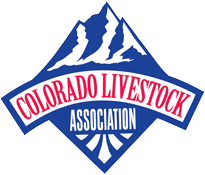Food Affordability Under Attack by Arbitrary Reductions Concerning Food Production
Aurora, CO – The Greenhouse Gas Emissions and Energy Management for Manufacturing Phase 2 (GEMM-2) air emissions regulations currently in development through the Colorado Department of Public Health and Environment (CDPHE) will critically impact Colorado beef processing operations, ultimately threatening the beef market. This is yet another example that the current administration is unfriendly to agriculture and business owners in Colorado.
The beef industry fully supports progress to reduce collective GHG emissions. However, limiting operations and reducing beef processing to meet GEMM-2 emissions standards is not a viable or effective long-term path toward the collective goal of reducing air emissions. Reductions in operations are not a sustainable pathway and threaten the viability of the local and global food supply chain.
Reductions in operations are not sustainable pathways and it threatens the viability of the local and global food supply chain. With the prices for food increasing at a rapid rate it is disconcerting that a rule proposed by a government championing its help to those disadvantaged communities would place a greater burden on households,” stated Zach Riley, Chief Executive Officer of the Colorado Livestock Association.
GEMM-2 regulations should provide flexibility for beef processing facilities while recognizing the important role these businesses play in the local economy and recognizing that curtailing operations is not a “sustainable” pathway to emissions reduction compliance.
As we learned during COVID, disruptions and limitations in the meat supply chain operations have real and significant consequences. All meatpackers were forced to reduce slaughter capacity due to workforce challenges caused by the pandemic. The decrease in slaughter rates had far-reaching impacts throughout the beef supply chain – including downward pressure on cattle prices to upward pressure on beef prices for consumers. This will result in higher beef prices at the grocery store for all consumers, especially those in disenfranchised communities with already limited access to affordable protein-rich food.
It is important to find a practical solution that provides meaningful and cost-effective reductions in greenhouse gas emissions while fostering continued economic development in the agriculture industry in Colorado.
